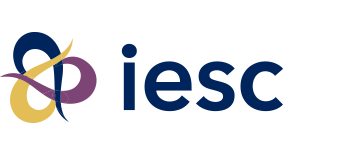Harvesting Prosperity through Cooperative Group Loans in Rural Mali
Located in the rural city of Gouandiaka in the southern Sikasso region of Mali, Senê Yiriwaton is a cereal producers’ cooperative that was founded in 2016 to unite cereal producers in the area in order to join together to negotiate for strong prices. The cooperative is composed of 55 members, including 51 men and four women, and has a six-member board that meets once a month. Their mission is to produce and commercialize cereals such as corn, rice, sorghum, and millet. For the 2018-2019 agricultural season, the cooperative’s goal was to focus on the production and marketing of corn and high-quality corn seeds. The cooperative farms a total of 186 hectares of corn, of which 184 hectares are individual cooperative members’ farmland. Two hectares of land are kept as a collective plot to produce improved corn seeds for the whole cooperative through technical support provided by the local Department of Agriculture.

Members of Sênê Yiriwaton from Solomanina
Senê Yiriwaton Cooperative is one of the 25-member cooperatives of the Yanfolila Corn Producers Union. The cooperative was introduced to the USAID and Sida-funded Feed the Future Mali Finance for Food Security and Women Entrepreneurs (FFSWE) Program in 2017 by the Yanfolila Corn Producers Union. In February 2018, the cooperative participated in a training on financial education. After the training, Daouda Traoré, the administrative secretary of the cooperative noted, “This training was very useful for us. Above all, we have learned the importance of collaborating with financial institutions to develop our activities through access to financial services and the need to respect commitments to it to benefit from its confidence in the future. As an immediate result of the training, the Senê Yiriwaton Cooperative opened an account at National Bank of Agricultural Development (BNDA) and received a loan that was paid off before term.” After the opening of the account at BDNA, the cooperative submitted a loan application of 2,000,000 CFA as part of the financing for its 2018-2019 crop year. This loan had a term of 11 months. The money was used to purchase 181 fertilizer bags, of which 171 bags were distributed as needed between 52 members of the cooperative. The remaining ten bags of fertilizer were used on the two hectares of the collective field dedicated to improved seed production. Cooperative Chairman, Fodé Doumbia said, “Without this loan, it was virtually impossible at this time for us to access these important agricultural inputs. The successful completion of the cooperative’s agricultural campaign could have been jeopardized if this loan had not been obtained from the BNDA.”
After the harvest, all 52 beneficiary members reimbursed their loans to the cooperative, for a total of 20,000 kg of corn. The cooperative sold the stock to its main customer, a wholesaler of grain in the area, then repaid the BNDA loan before loan expiration date. In addition, the cooperative currently has a stock of 2,100 kg of improved corn seed certified by the National Seed Laboratory (LABOSEN). The sale of this stock is planned for the beginning of the next rainy season and will be carried out with the assistance of the local Department of Agriculture.
The resources generated by the cooperative increased from 50,000 CFA before the loan (previous agricultural season) to 1,050,000 CFA after the loan (current agricultural season). Yaya Camara, the treasurer of the cooperative said, “Thanks to this loan, each of us, after repayment, has obtained on average 6,000 kg of corn (about 750,000 CFA) more compared to last year.” In the future, the cooperative intends to submit a new loan application worth 5,000,000 CFA with BNDA to finance its next agricultural campaign as they believe they have the capacity to accept and utilize a bigger loan. FFSWE’s work with Senê Yiriwaton Cooperative is a great example of how financial literacy education for micro-, small, and medium enterprises leads to greater entrepreneurial success!
Feed the Future is the U.S. Government’s global hunger and food security initiative. With a focus on smallholder farmers, particularly women, Feed the Future supports partner countries in developing their agriculture sectors to spur economic growth and trade that increase incomes and reduce hunger, poverty and undernutrition.
USAID is the lead U.S. Government agency working to end extreme global poverty and enable resilient, democratic societies to realize their potential. The objective of Swedish development cooperation is to create opportunities for people living in poverty and under oppression to improve their living conditions.

